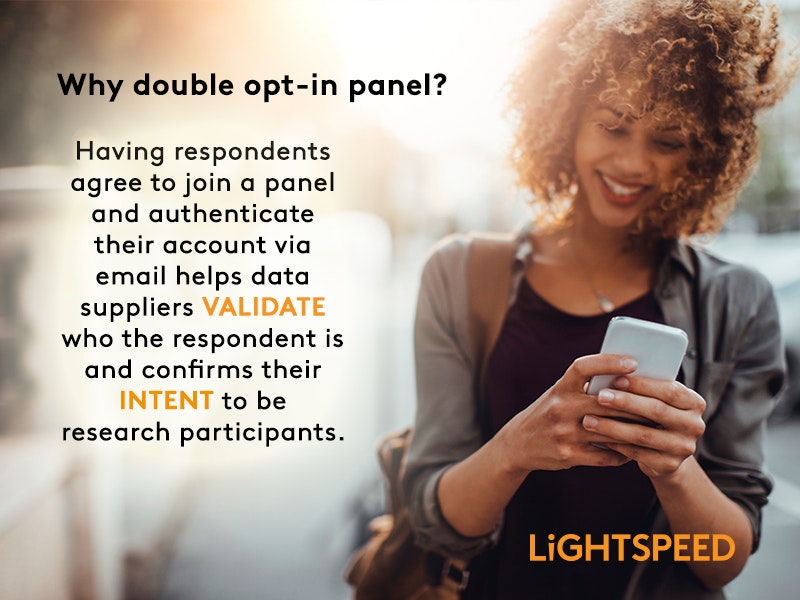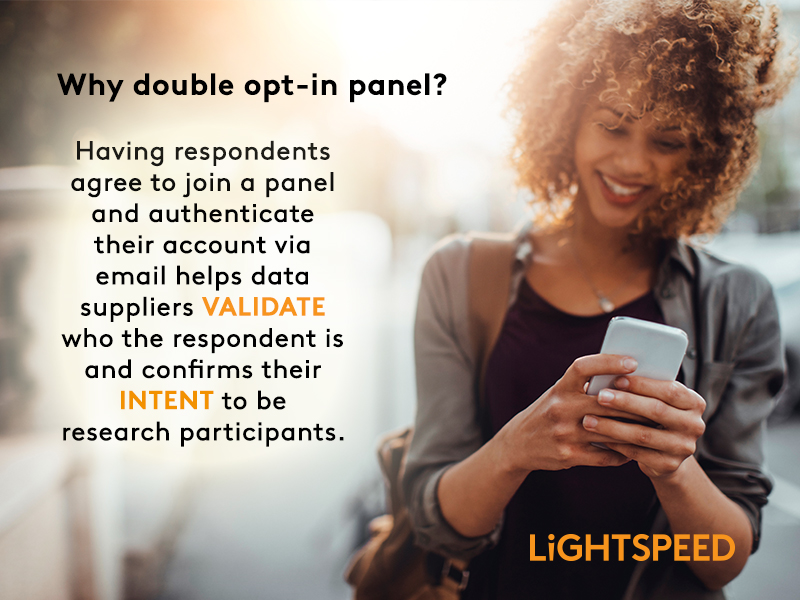Are You Validating Your Data Sources? Here's Why You Should Be

There’s an abundance of data available to marketers, from first-party, to second-party, to third-party. We know we can collect it from a variety of sources and connect these data for a more holistic view of our target customers. But what needs to get added to today’s data discussion is the integrity and quality of the mass data at our researching fingertips, or the importance data validation plays in the GDPR world we now live and work in. While only instated in May of this year, the guidelines implemented by GDPR have had a significant impact on the digital advertising, consumer insights and market research industries.
With that in mind, let’s explore how to (1) ensure that these data we rely on are sourced in ways that respect research panelists, (2) are compliant with new governmental and industry regulations and (3) are provided to us in a thoughtful manner from real people.
Data Integrity
Whatever kind of data you’re looking to collect, whether it be double opt-in panel, third-party behavioral data or scaled audience for media targeting, transparency is key. It’s how we build trust with consumers (and survey respondents) and it’s how we support the validity of the work we do as researchers. A big part of that means responsibly-sourced data.
So as both a client and researcher, what are some of the questions you should be asking to ensure the data sources being used for your business decisions are validated?
- Have research participants given consent? It’s best practice for a panel company to declare up front and prior to accepting a new member into a research panel that they are a research company. Double opt-in panelists should agree to become a research subject. This disclosure and honesty of intent to conduct research puts providers and researchers in a low risk, desirable, and advantageous position with respect to GDPR regulations.
- Are all outside sources GDPR compliant? When a supplier purchases research subjects from a partner to supplement and blend with their own double opt-in panel, they should have legal agreements in place requiring partners to represent and warrant their compliance with the GDPR regulations. In other words, the supplier should syndicate the responsibility of GDPR compliance before purchasing supplementary participants. The same goes for any third-party data source.
- How do you know consumers are who they say they are? Data suppliers should have a series of checks and best practices in place to ensure a standard of data quality. This can include IP verification, data matching, and removing over reporters before they enter a survey.
Data Quality
While transparency and integrity is incredibly important when looking at data validation, it’s only one-half of the equation. High-quality data sources should play an equal role when evaluating the validity of data. When you’re considering what to be on the look-out for, some of the ways Lightspeed addresses the quality of our double opt-in panel might be a helpful guide:
- IP Verification: The IP address of a new panelist is checked to confirm where they are located and against a known list of fraudulent servers
- Identity Validation: Confirm who is joining the panel by matching personally identifying information to various financial or social network databases
- Honesty Detector: A patented statistical approach to eliminating over reporters from your surveys
- Survey Health Score: Our proprietary metric that delivers you better data as a result of higher consumer engagement
Always think respondent first, and that's not exclusive to survey design. Data integrity means transparency and disclosure. They are the touchstones for improving quality while meeting the GDPR regulations. Techniques such as geo-location validation, identity validation, and survey response tests increase data quality. These techniques are permissible under the rules of GDPR when the data provider has declared up front research intent and panel members have agreed to become research subjects.
 About the Author: Melissa Moxley serves as Lightspeed’s Global Product Manager. As a key member of the Global Marketing and Business Strategy Team, Melissa drives the adaption and implementation of QuestionArts, Lightspeed’s survey programming and design. As an escalation point for regional teams, Melissa strategizes on commercial and marketing based engagements and ensures global compliance. Since joining the company in 2010, Melissa has worked in a variety of client facing related roles, concentrating primarily on mentoring and leading the West coast full service team in the Americas region. Her clients have varied in size and complexity ranging from entertainment and consumer goods to information technology and real estate.
About the Author: Melissa Moxley serves as Lightspeed’s Global Product Manager. As a key member of the Global Marketing and Business Strategy Team, Melissa drives the adaption and implementation of QuestionArts, Lightspeed’s survey programming and design. As an escalation point for regional teams, Melissa strategizes on commercial and marketing based engagements and ensures global compliance. Since joining the company in 2010, Melissa has worked in a variety of client facing related roles, concentrating primarily on mentoring and leading the West coast full service team in the Americas region. Her clients have varied in size and complexity ranging from entertainment and consumer goods to information technology and real estate.
Prior to joining the organization, Melissa launched her industry career at Synovate as Project Manager and worked her way into a Senior Research Analyst role. In this role, she worked primarily on the Proctor and Gamble account, handling both R&D as well as CMK projects. Melissa earned her degree in Psychology and Business at Indiana University.
